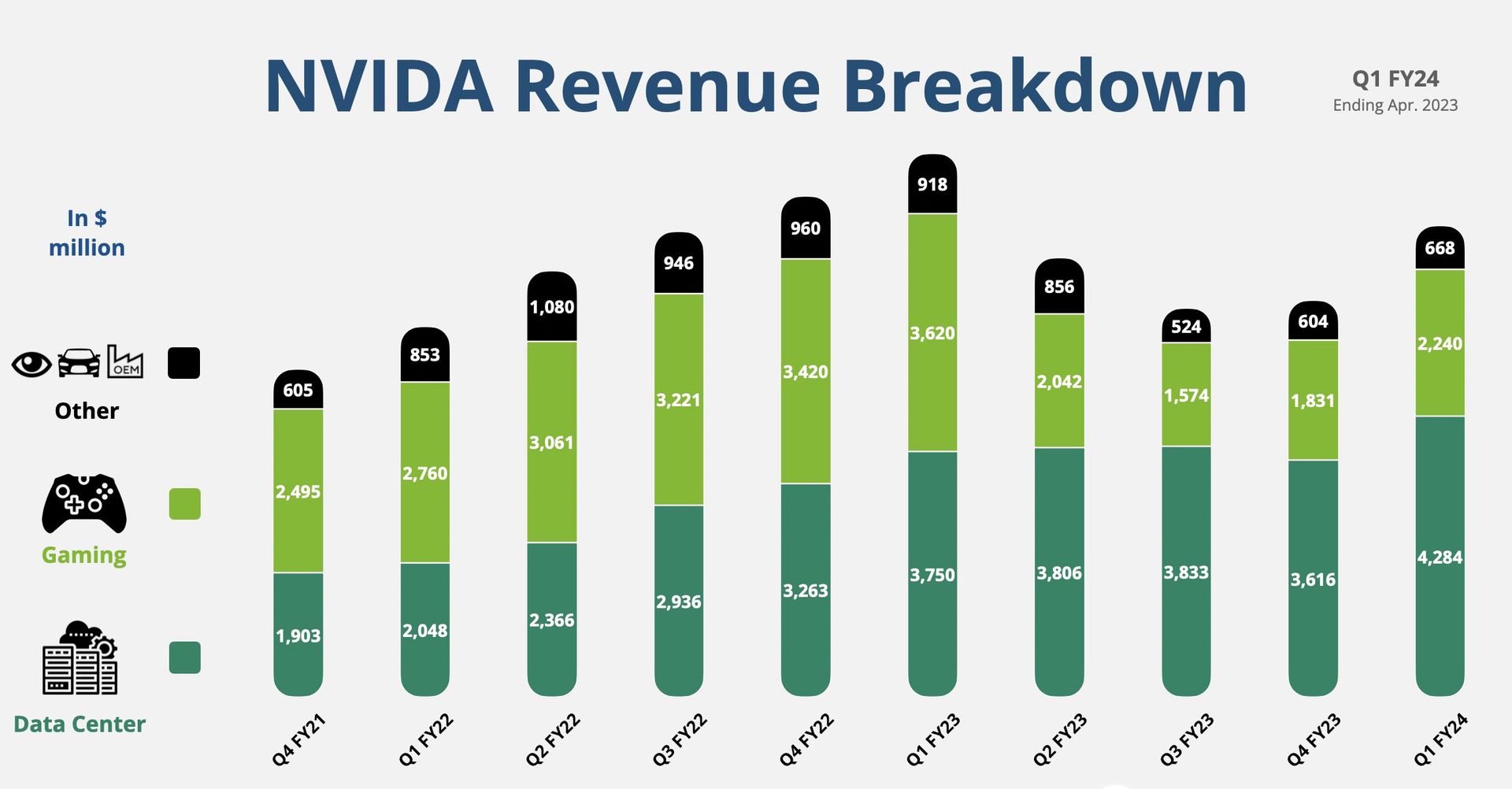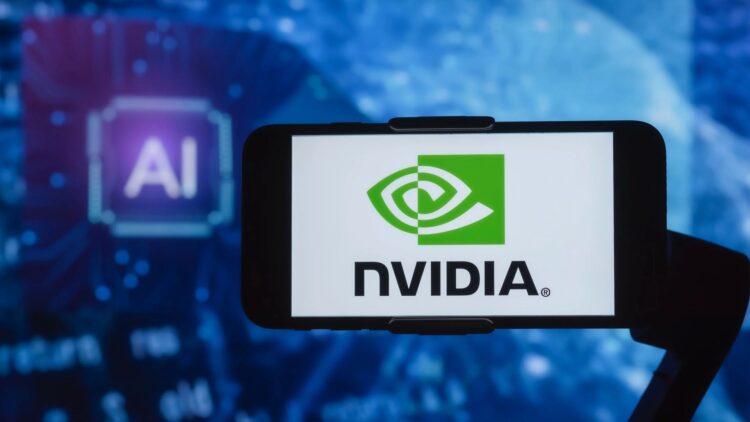In a remarkable turn of events, Nvidia, the renowned graphics chip maker, witnessed a staggering surge of more than 26% in its stock value on Thursday. The surge was propelled by Nvidia’s outstanding performance in the rapidly expanding field of generative artificial intelligence (AI) and the soaring demand for data center solutions. Investors were elated after Nvidia reported better-than-expected first-quarter earnings, highlighting a significant acceleration in data center revenue for the current quarter.
Nvidia’s strong position as the leading AI chip maker can be attributed to its extensive investments in AI technologies. Over the past decade, the company has not only developed cutting-edge chips but has also built a comprehensive ecosystem that includes systems and software, making it a full-stack solutions provider. This strategic approach has solidified Nvidia’s dominance in the short term, as it remains the sole game in town for GPUs. And Srini Pajjuri, managing director of Raymond James, predicts that the firm won’t lose that distinction very soon.
“There’s only one supplier of GPUs, and Nvidia has been investing in this market for the last 10 years. They not only have the chips, they have the systems, the software, it’s a full stack solutions company,” Pajjuri explains.
Nvidia’s quarterly report for fiscal 2024 surprises experts
The first-quarter results showcased Nvidia’s impressive financial performance. The company exceeded analysts’ expectations on both the top and bottom lines. The data center business played a significant role in this success, bringing in $4.2 billion in revenue, surpassing Wall Street’s forecast of $3.9 billion. This substantial growth in data center revenue highlights the increasing demand for Nvidia’s solutions in this sector. However, the gaming business faced challenges due to reduced consumer spending on PCs and graphics cards following the pandemic-induced surge. Despite this setback, the gaming segment still performed better than anticipated, generating $2.2 billion in revenue.

Looking ahead, Nvidia’s second-quarter projections have caught the attention of Wall Street. The company expects revenue of $11 billion, plus or minus 2%, significantly surpassing the market’s expectation of $7.2 billion. This remarkable beat of the consensus guidance by 50% reflects Nvidia’s strong position and solidifies its reputation as a market leader. The growing demand for AI-related products and services has fueled Nvidia’s revenue growth, further strengthening its position in the industry.
While Nvidia currently enjoys a dominant market position, there are potential challenges on the horizon. Long-time rival AMD could emerge as a formidable competitor, aiming to capture market share in the AI chip market. Additionally, companies designing their own custom chips may pose a threat to Nvidia’s market stronghold. In-house chip design enables significant cost reduction, potentially attracting customers away from Nvidia’s high-priced chips. However, Nvidia’s comprehensive and unmatched capabilities in providing full-stack solutions make it difficult for competitors to match the company’s expertise.
Nvidia’s incredible success is a testament to the AI-driven boom and the soaring demand for data center solutions. The company’s strategic investments, comprehensive offerings, and outstanding financial performance have positioned it as the indisputable leader in AI chip manufacturing.
Since the current AI explosion began when OpenAI unveiled their generative AI chatbot ChatGPT last year, Microsoft and Google have entered the fray with generative AI-powered search engines, bots, and other products. While more companies may join the race and challenges may arise in the future, Nvidia’s strong market presence and technological prowess continue to set it apart from the competition. As AI continues to reshape industries and societies, Nvidia stands at the forefront, driving innovation and shaping the future of artificial intelligence.
If you’d like to check out one of Nvidia’s latest initiatives, check out how to download Nvidia Canvas Beta.





